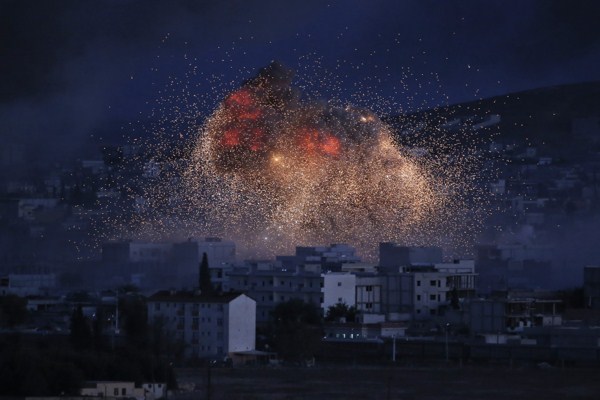While the world watches the battle over the Syrian border town of Kobani in light of Turkish tensions with its Western partners in the fight against the so-called Islamic State (IS), there are significant Kurdish undercurrents that have largely escaped attention. Regardless of whether Kobani falls or Syria’s main Kurdish rebel group, the People’s Protection Unit (YPG), ultimately manages to hold the town, the resistance that Syria’s Kurds have put up for a month now against vastly superior IS forces has already become “a defining moment for nationhood and identity”for Kurds everywhere—a kind of Kurdish Alamo.
As Kobani’s YPG fighters inspire the Kurdish national imagination, they could come to dominate and redefine Kurdish politics beyond Syria. In light of the YPG’s heroic resistance, Massoud Barzani, president of Iraq’s Kurdistan Regional Government (KRG) and the man who until now was seen as the champion of Kurdish self-determination, could no longer stand by and leave Syria’s Kurds to their own devices. If Barzani wanted to have a stake in the post-IS order for the Kurdish areas of Syria and not lose his claim as the figurehead of Kurdish nationhood to the YPG, he had to act.
As a result, the KRG announced Monday it would dispatch peshmerga forces to break the IS siege of Kobani. The decision was taken in consultation with Turkey, which announced it would allow the peshmerga free passage through Turkish territory. These developments followed the first U.S. air drops on Sunday of weapons, ammunition and medical aid to Kurdish fighters in Kobani—supplies that had been donated by the KRG.

